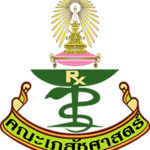Diabetes: Early Detection is Key to Management

Diabetes: Early Detection is Key to Management
Diabetes isn't just a Thai health concern—it's a global epidemic that may be closer to you than you realize. According to the International Diabetes Federation, 537 million people worldwide lived with diabetes in 2021, with projections reaching 643 million by 2030. In Thailand alone, 2022 saw 3.3 million total patients, approximately 300,000 new diagnoses, and 16,388 diabetes-related deaths.
Understanding Diabetes
At its core, diabetes results from abnormal blood sugar regulation. Insulin, the body's key blood sugar regulator, either isn't produced in sufficient quantities or encounters resistance from cells. This leads to steadily rising blood sugar levels which, if poorly managed, can trigger serious complications.
Know Your Risk Factors
Diabetes risk stems from both uncontrollable and controllable factors:
Uncontrollable factors include:Genetics: Having parents or siblings with diabetes increases your risk
Age: Risk rises significantly after age 45
Ethnicity: Higher prevalence among Asian, African, and Latin American populations
Controllable factors include:
Weight: Excess weight, particularly abdominal fat, increases insulin resistance
Physical activity: Sedentary lifestyles impair your body's ability to use sugar effectively
Diet: Consuming excessive sugar, refined flour, and saturated fats raises risk
Stress: Chronic stress affects hormones that regulate blood sugar
Lifestyle choices: Smoking and alcohol consumption increase insulin resistance and complications
When to Get Screened
Consider diabetes screening if you:
Are 35+ and have never been screened
Have a BMI of 23 kg/m² or higher
Have family history of diabetes
Exercise infrequently
Have high blood pressure or abnormal blood lipids
Have insulin resistance conditions like polycystic ovary syndrome
Had gestational diabetes during pregnancy
Previously recorded elevated blood sugar levels
Recognizing the Warning Signs
Early diabetes often presents few symptoms. However, significantly elevated blood sugar may cause:
Frequent urination, especially at night
Persistent thirst
Increased hunger
Weight loss despite increased food intake
Frequent infections
Slow-healing wounds
If you experience these symptoms, seek immediate medical screening.
Managing Diabetes Effectively
While diabetes remains a chronic, incurable condition, early detection dramatically improves outcomes. Modern medications effectively reduce and control blood sugar levels when taken consistently. Successful management requires:
Regular medication as prescribed
Consistent medical follow-ups
Crucial lifestyle and dietary modifications
The Importance of Compliance
Neglecting treatment, inconsistent medication use, and failing to modify diet and behavior leads to serious complications including kidney failure and cardiovascular disease—potentially resulting in disability or premature death.
If you have risk factors or symptoms, please follow the screening recommendations above. With proper management, diabetes need not control your life.
Assoc. Prof. Dr. Nattada Areepiam and Assoc. Prof. Dr. Bodin Tiwasuwan
Faculty of Pharmacy Chulalongkorn University
เราใช้คุกกี้เพื่อพัฒนาประสบการณ์การใช้งานเว็บไซต์ของคุณให้ดียิ่งขึ้น คุณสามารถจัดการความเป็นส่วนตัวของคุณได้เองโดยคลิกที่ ตั้งค่า
